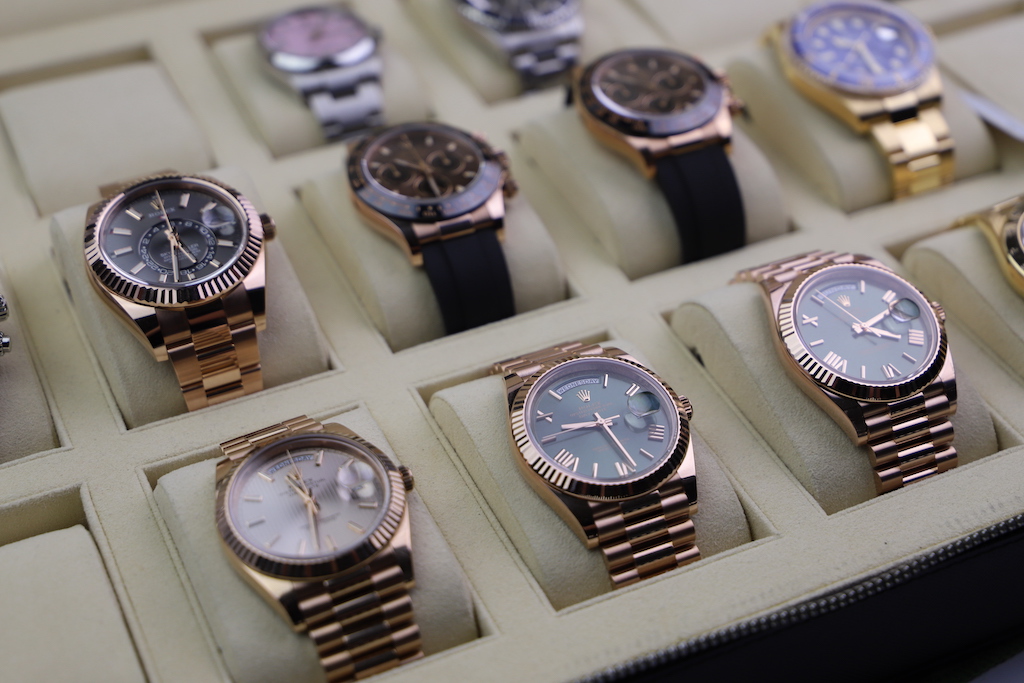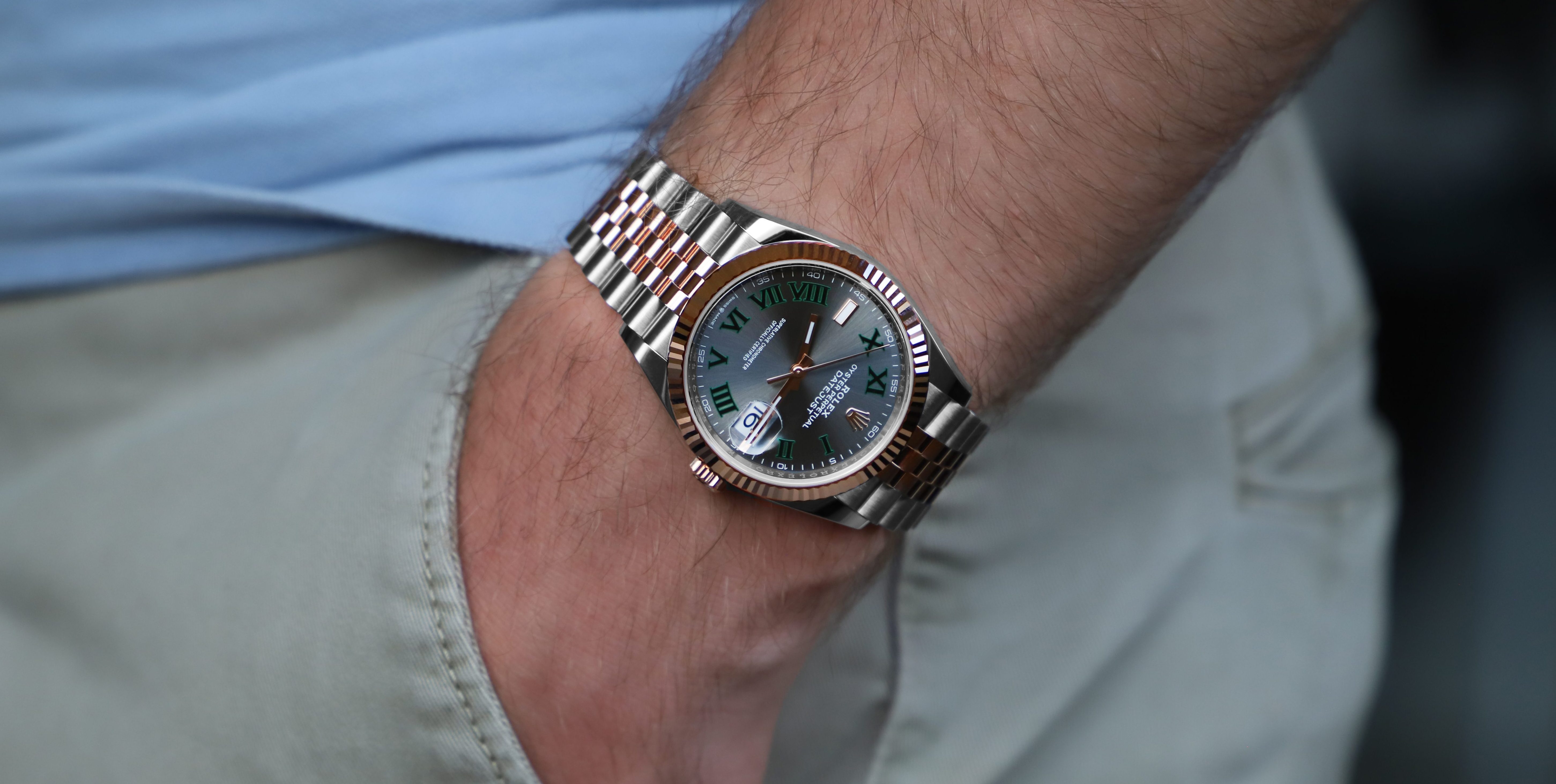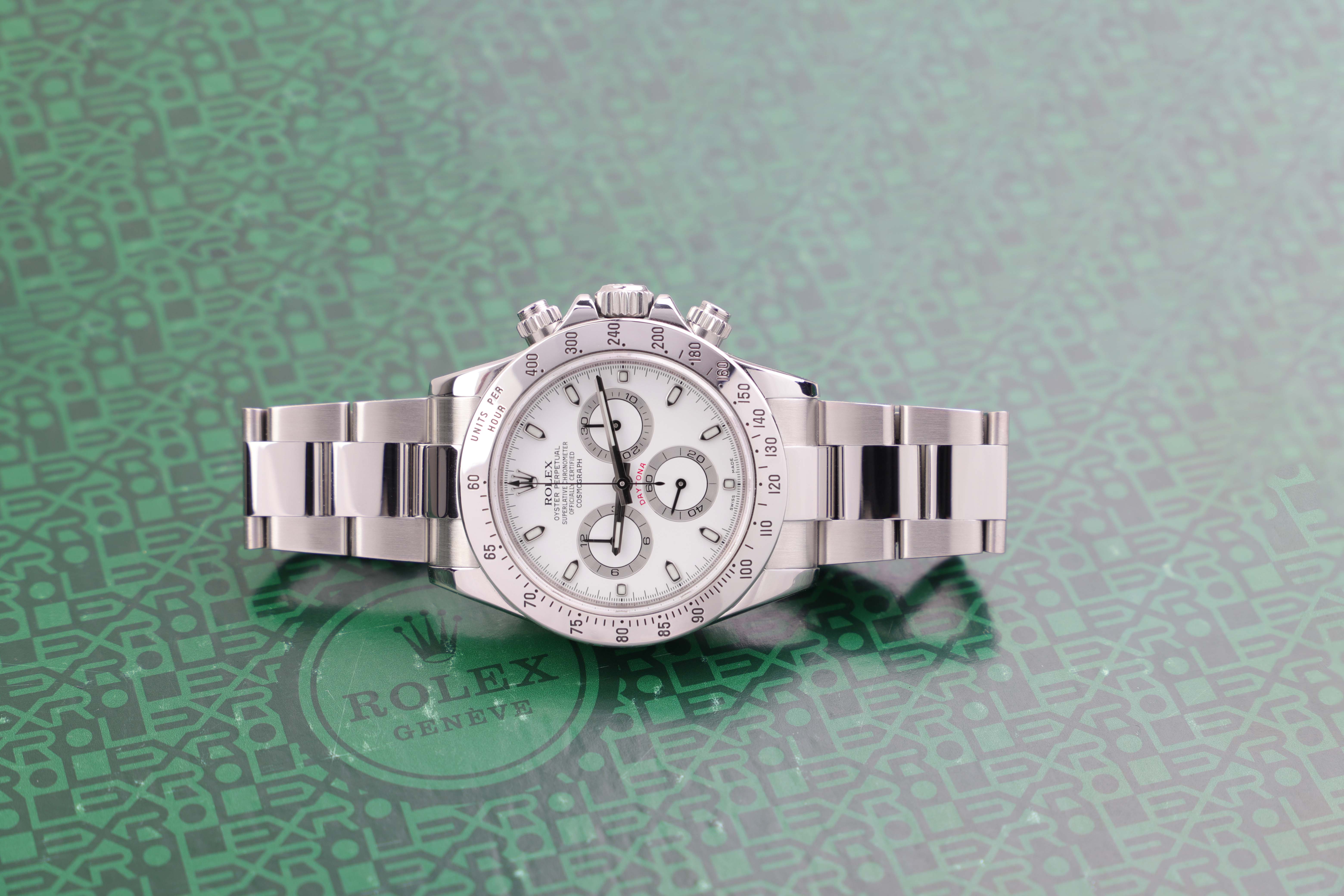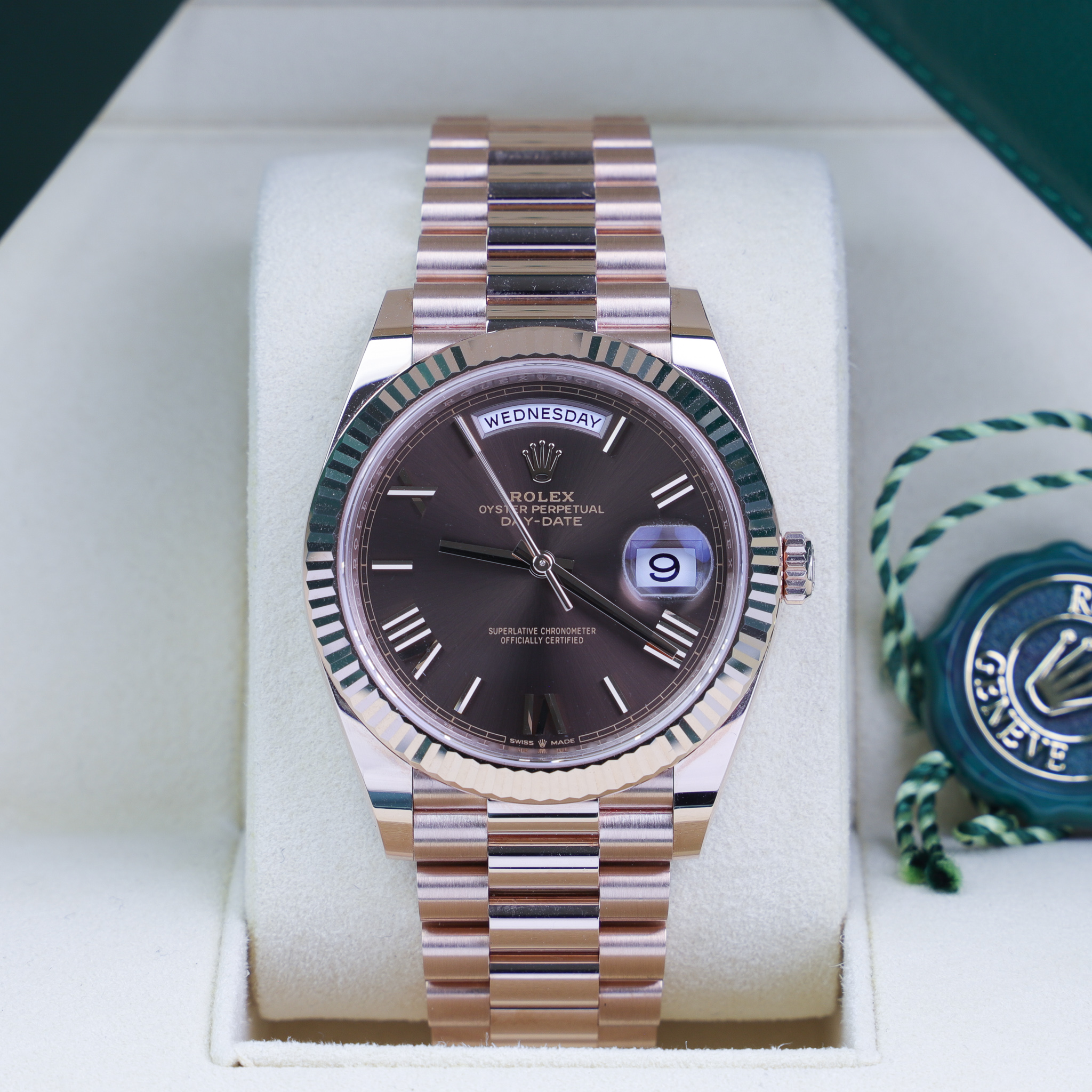
What is a Luxury Watch? [Complete Guide]
You’ve heard the term “luxury watch” a million times. But what does it really mean? Different people use the term “luxury” in different ways, and as such, the term “luxury watch” is used with different meanings by different people.
The watch market is full of watches from all kinds of different segments and brands. There’s also a wide selection of prices, from just a few dollars to millions of dollars. The span of a
In this article, we will get to the bottom of what a luxury watch is and define what it really is.
Definition of a luxury watch
A luxury watch will always be expensive but an expensive watch will not always be luxury. At the same time, “expensive” will always be subjective, and “expensive” for one person may be considered cheap for others. This is why price alone is rarely a good indication of what makes a luxury watch.
The point is that a high price is not really a requirement for a watch to become a luxury. You cannot take a low-quality watch, put a high price, and then it becomes a luxury watch all of a sudden.
Instead, we need to look at other defining parameters of luxury watches.

A luxury watch is a watch that uses high-quality, premium materials, are powered by advanced and complex movements, and are often (at least partially) hand-made. Luxury watch manufacturers go above and beyond to ensure the utmost precision, performance, quality, and attention to detail. Simply put, luxury watches go above and beyond in their manufacturing process to guarantee a premium product.
On the contrary, regular watches that are not meant to be luxury watches, tend to opt for more affordable materials, are mass-produced, often with no or very little human interference, and have a lower level of attention to detail. The precision and quality of things like polishing and finish are often lower and can be distinguished when put side-by-side with a luxury watch.
Because there is no official definition or set of rules that define a luxury watch, it’s not clear-cut what is a luxury watch and what is not. A watch that some people may perceive as a luxury watch may be regarded as cheap and of low quality by others.
A watch brand that decides “okay, we are going to make a luxury watch” is a brand that doesn’t just decide that they are going to make something that tells the time. They decide that they are going to select the best materials, put attention and detail into every step of the production, uphold great quality, and put extra emphasis on visual design elements that serve no other purpose than to elevate the watch’s looks. Technically, any finish and detail that doesn’t support the watch’s function are superfluous and a luxury. So a lot of it has to do with the visual elements that serve no other purpose than to make the watch beautiful, but the brand does it anyway.

Definition of luxury
To try to establish a definition that is as close as possible to what a luxury watch actually is, let’s look at the definition of “luxury”.
Merriam-Webster has three different definitions for luxury:
“a condition of abundance or great ease and comfort: sumptuous environment”
“something adding to pleasure or comfort but not absolutely necessary”
“an indulgence in something that provides pleasure, satisfaction, or ease”.
With these three definitions, it’s easy to see why the definition is so broad when it comes to luxury watches.
Essentially, any watch that goes above and beyond in telling the time, for example by having a higher-finish or greater attention to detail could be defined as a luxury watch. You don’t need a watch that combines brushed with polished elements just because it looks good.
Cambridge Dictionary, however, has slightly different definitions of Luxury:
“something expensive that is pleasant to have but is not necessary:”
“great comfort, especially as provided by expensive and beautiful things”
And we would say that these two definitions are better applicable to luxury watches. A luxury watch is not a necessity. A watch’s most basic purpose is to help you keep track of time. But you could essentially just buy the most affordable, cheapest watch without thinking about things like materials, quality, and finish. But, as the definition states, a luxury watch is “pleasant to have”, but not necessary. As such, if you have the opportunity to buy one, you’ll get much more enjoyment out of it than a regular, cheap, and affordable watch.
At the same time, as discussed earlier, “expensive” will always be subjective so there’s no clear-cut definition here. Some people will consider an expensive watch something that costs 200 dollars and above. And that would not be completely wrong either because 200 dollars is expensive when you take into account the fact that you can buy watches for less than 50 dollars.

Moreover, it’s no news that humans can get great comfort out of nice and luxurious things. It’s often referred to as material happiness. You’ll be much more excited and proud when you’ve just bought an expensive luxury watch than a cheap, mass-produced watch for just a few bucks. This is because the occasion becomes more special, but it is also because it becomes more special to wear it. You know what it costs and this makes for a much greater sense of occasion every time you put it on.
And in our opinion, this is where the true definition of a luxury watch lies. Most people will not get any sense of “special occasion” when putting on a cheap 10-dollar watch. But they will get a great sense of enjoyment out of putting on a 5000-dollar watch.
But because this is objective, everyone’s perception of a luxury watch will of course be different. Some people will get great enjoyment and great comfort when putting on a 500-dollar watch after they have saved a long time for it. On the contrary, other people won’t blink an eye unless the watch costs more than 10.000 dollars. So partially, a luxury watch is about the individual perception, but the other is about how the watch is made and the care and attention that has gone into making it.
In regards to the price, we can say that a part of the equation is that luxury is something that not everyone can afford. As such, a luxury watch could be seen as something that is not accessible to everyone. And this is also something that contributes to making the watch feel even more special, by knowing that most people are not able to afford it, and you’re less likely to see anyone else wearing it.

Luxury is closely associated with the brand
The fact of the matter is that luxury is closely associated with the brand that makes it. As such, the stamp of luxury is not something you just “get”. It’s something that you earn. The most famous, well-known, and recognized luxury watch brands have worked hard for a long time to establish a luxury status. And to do this, they have focused on building high-quality, exclusive timepieces with premium material and with utmost attention to detail.
For example, Rolex is today one of the most well-known luxury watch brands in the world, but did you know that Rolex has not always been a luxury brand? Rolex initially made functional and practical timepieces that were meant as practical tools rather than luxuries. But over the course of its history, Rolex shifted its production, marketing, and manufacturing to establish a reputation of luxury and to create products that people viewed as luxurious.

When it comes to luxury products, the brand is an extremely important aspect of people’s perception of what is luxurious. But at the same time, the status of a luxury brand can only be established when it is backed by luxurious, premium products. Luxury watch brands establish themselves as luxury brands because they go above and beyond in the manufacturing of their products. A brand doesn’t become synonymous with luxury solely by clever marketing and promotion. They also need the products to back it up with their products.
The quality is evident in luxury watches
Elaborating a bit more about the quality of watches, this is really where luxury watches differ from regular watches.
When you put a cheap watch and a luxury watch side by side, you can notice the difference immediately. The weight, the “solidity”, the finish, the attention to detail, and the decoration. If you look at a luxury watch in detail, you can really see and feel the difference. There’s just that extra sense of, well, luxury to it that is evident.
Moreover, due to the higher level of attention to detail and improved materials, luxury watches naturally and usually also tend to hold higher quality. Whilst a plastic Swatch watch, for example, can be expected to last a few years, a Rolex watch can be expected to last for generations when maintained and taken care of properly. This is also a part of the reason why it can be justified to buy luxury watches as opposed to cheap and affordable watches. They can last for generations and be passed on through generations. In other words, it’s not just about people’s perceptions. The perception of luxury should also be backed up by quality and longevity.

So whilst the feeling of prestige, sense of occasion, and brand perception are important aspects of a luxury watch, it’s not all just smoke and mirrors when it comes to luxury watches. The difference in the materials and time and effort that has been put into making the watch is also clearly evident.
Brands like Rolex and other premium watchmakers also go above and beyond in the development of their watches. Rolex, for example, works hard and invests tons of resources into research and development in order to get greater control over the whole production chain, from start to finish. Rolex is one of only a few brands that has its own foundry and makes its own gold to ensure that it gets exactly the right properties they are looking for. Moreover, essentially all parts of a Rolex watch are made in-house and none are outsourced. All of this is done to get full control of the production from start to finish and to ensure that utmost quality is upheld.
This naturally costs a lot of money and resources and has to be reflected in the price. But you’re also getting something for it. All of this results in better, more qualitative, and more exclusive products.

How much does a luxury watch cost?
As we have concluded, luxury watches will naturally come with a higher price tag than mass-produced, low-quality watches. At the same time, just because a watch isn’t a “luxury watch” doesn’t mean it’s low quality. It may just mean that they don’t put the same amount of attention to detail into things like finishing, polishing, and hand-made decorations. They may also have slightly lower-quality materials and avoid expensive luxury materials like gold.
As discussed, it’s impossible to say an exact figure for what defines a luxury watch because it’s different for everyone. Plus, a high price doesn’t automatically make a watch luxurious. It also needs to be backed up by the things discussed above such as quality and finish.
Moreover, some people would consider it a luxury just to own a watch, whilst others would not consider a watch for less than 5000 dollars a luxury watch.

But generally speaking, watches that people consider “luxury watches” tend to cost at least a thousand dollars on the lower end of the spectrum. Some people would say two thousand, others would say five thousand. And on the other side of the spectrum, there’s no maximum limit. Some watches cost hundreds of thousands or even millions of dollars.
So as a general rule, we can say that a luxury watch costs anything between a few thousand dollars to millions of dollars. Most luxury watches that are sold, however, tend to cost a few thousand dollars.

Is a luxury watch worth it?
The answer to this question is purely subjective. If all you need and care about is to have a watch to tell the time, then no, a luxury watch is not worth it. But if you consider the enjoyment and sense of occasion you’ll get by wearing it, then yes, a luxury watch is definitely worth it. A luxury watch is not all about price. But the higher price tag also comes with improved quality, finish, and a clear difference in the overall perception of the product’s quality upon review. You’ll really be able to notice a huge difference between a cheap watch and a luxury watch. It’s not all about smoke and mirrors.




